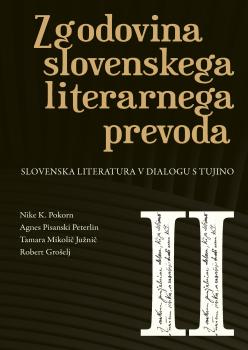Literarnoprevodne izmenjave s slovaščino
Synopsis
The aim of the chapter is to highlight the presence of literary translation from and into Slovak in Slovenia in the 20th century, especially after 1918. In this period, inter-literary contacts reflect a historical and identity-related experience and embeddedness in the regional and wider European cultural space. At the same time, they are determined by the socio-political situation and issues of national, religious and linguistic affiliation. The most frequently translated Slovene works into Slovak are classics from authors such as Prešeren, Cankar and Kosovel, while Slovak fairy tales and children and youth literature stand out from the genres translated into Slovene. At the beginning of the 20th century, literary translators of Slovene literature into Slovak were generally Slavists, editors, poets or professors. They usually did not translate exclusively from one language to another, but rather covered several neighbouring languages (South Slavic or Slovak and Czech). An overview of translation flows throughout the 20th century shows a continuous growth of published literary translations and the professionalization of translators, which is the result of long-term personal and institutionally supported work in the field of literary contacts. The study aims to reveal the context and factors influencing Slovene and Slovak literary translation exchange, as well as the existing dynamics of the translation production between these two languages from the point of view of genres, authors and translators.


